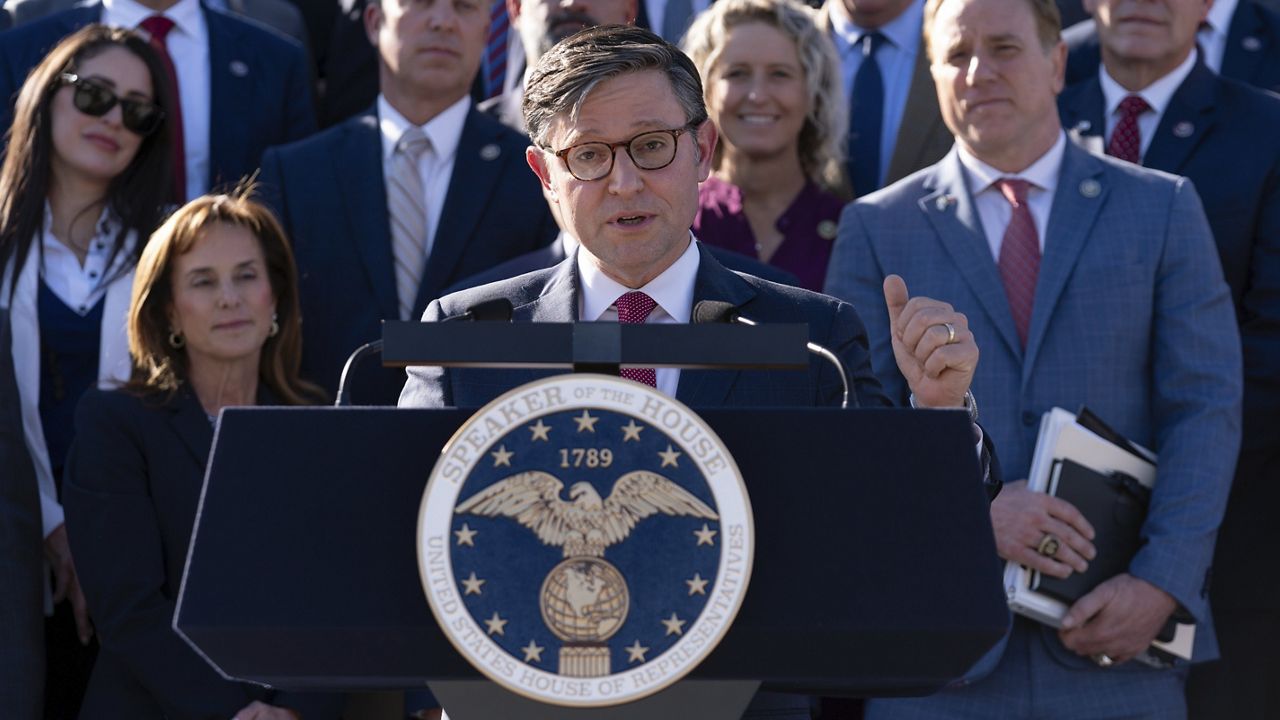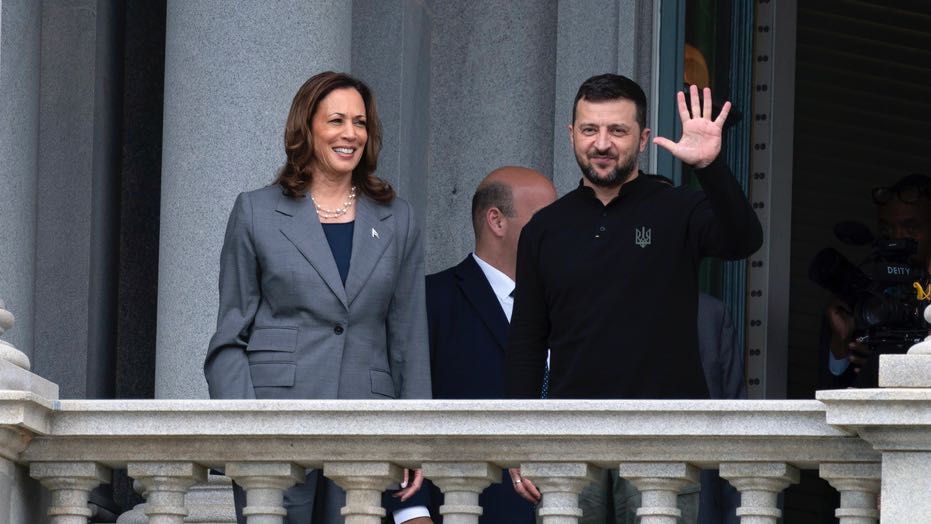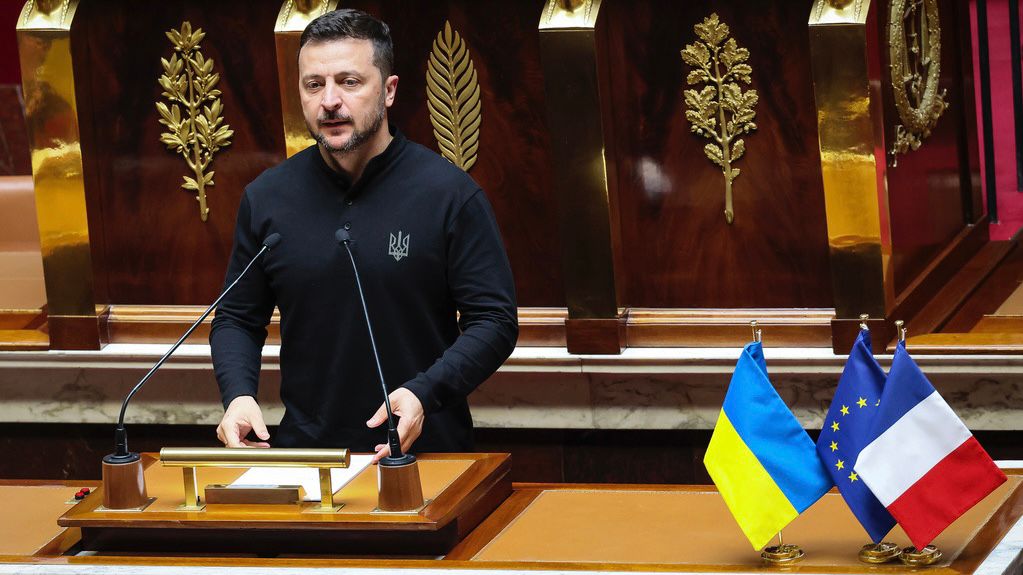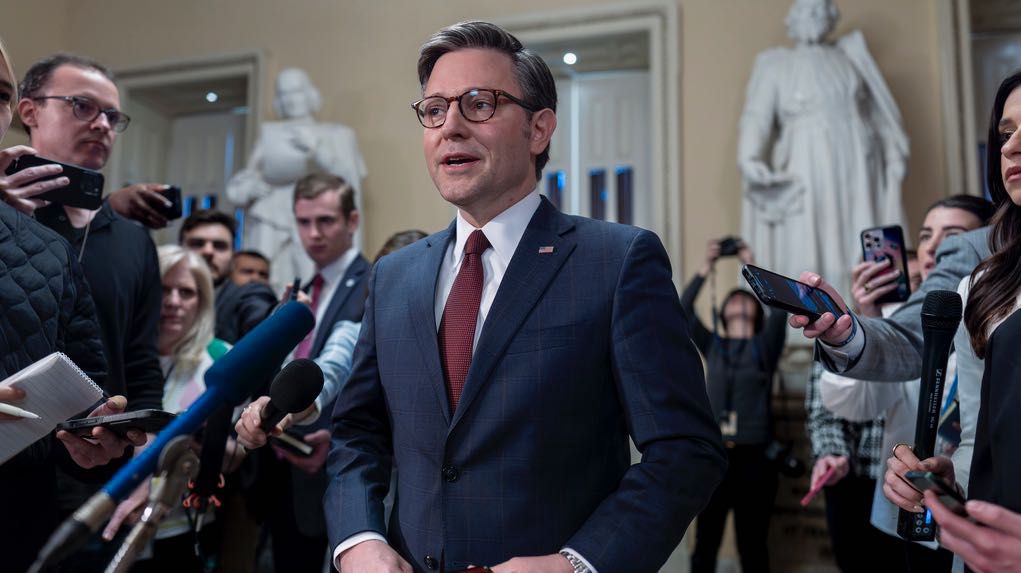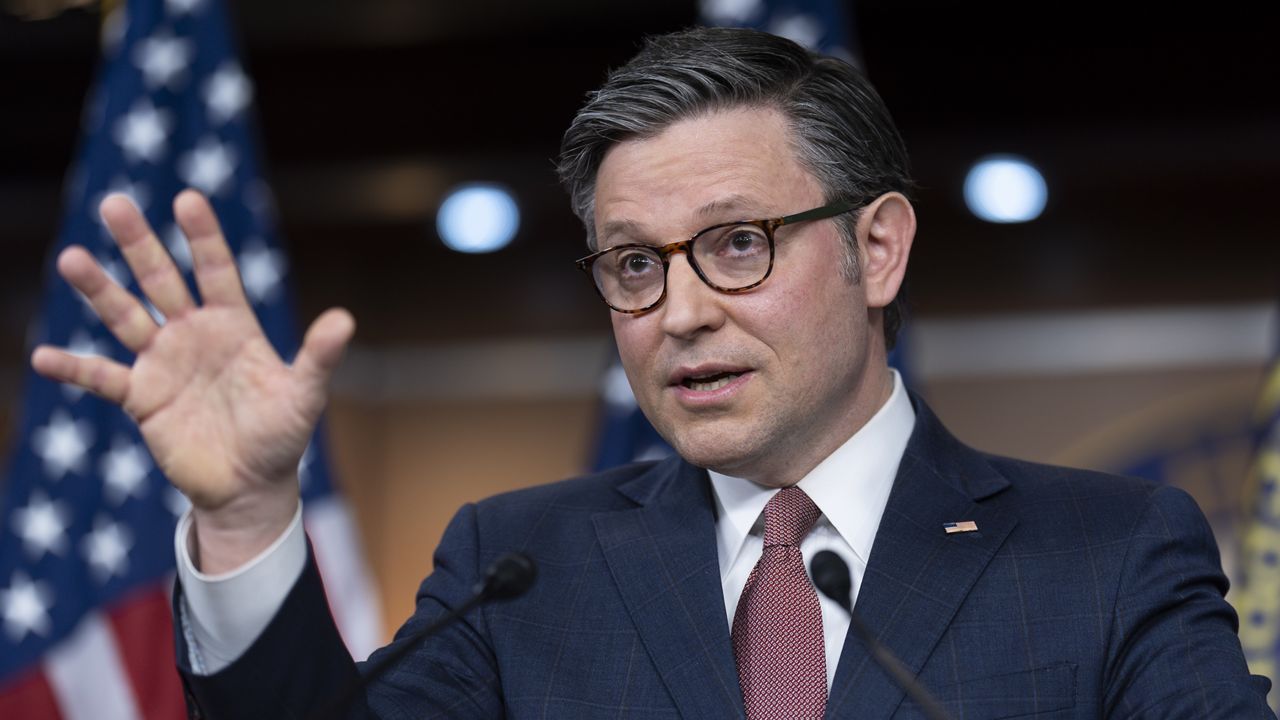In his first interview since being elected Speaker of the House earlier this week, Mike Johnson suggested that he wants to separate aid to Israel from support for Ukraine, likely setting up a showdown with President Joe Biden and the Senate, who want to tie the two together in one sweeping package.
Johnson’s comments came in a sit-down with Fox News’ Sean Hannity Thursday night after a meeting at the White House with President Biden and House Democratic Leader Hakeem Jeffries, D-N.Y., about the $106 billion aid request, which would also provide funding to bolster security at the U.S.-Mexico border and aid to Indo-Pacific nations, including Taiwan.
“I told the staff at the White House today that our consensus among House Republicans is we need to bifurcate those issues,” Johnson told the Fox News host after his first full day as speaker, before claiming that the American people are clamoring for oversight on how funding for Ukraine is spent.
“We can’t allow [Russian President] Vladimir Putin to prevail in Ukraine, because I don’t believe it would stop there and it would probably encourage and empower China to perhaps make a move on Taiwan, we have these concerns,” he continued. “We’re not going to abandon them, but we have a responsibility — a stewardship responsibility — over the precious treasure of the American people, and we have to make sure that the White House is providing the people with some accountability for the dollars.”
Johnson went on to say that Republicans will instead bring a separate $14.5 billion Israel aid bill to the floor — slightly higher than the $14.3 billion figure that Biden asked for in his request, but noted it is a “very specific number tied to very specific measures” and offset by spending cuts elsewhere, likely a nonstarter as far as the White House and Democratic-controlled Senate are concerned.
“We must stand with our important ally in the Middle East and that’s Israel,” Johnson told Hannity.
Johnson’s stance will not only put him at odds with the Biden Administration and Democrats in both chambers of Congress, but also some Senate Republicans who have stressed the importance of passing aid to both countries at once. In multiple interviews last weekend, Senate Minority Leader Mitch McConnell, R-Ky., made the case that Ukraine’s efforts to repel Russia’s invasion and Israel’s war with Hamas are “interconnected.”
“I know there are some Republicans in the Senate, and maybe more in the House, saying Ukraine is somehow different,” McConnell said on CBS’ “Face the Nation” on Sunday. “I view it as all interconnected.”
“You can’t just take out part of this,” the Kentucky Republican said in a separate interview with “Fox News Sunday.” “It's an overall effort by [the] Chinese, [the] Russians, the Iranians to go after the free world, and the Israelis are feeling the pinch at the moment more than anyone else, and we need to stick with them.”
“We need to view this as a worldwide problem,” he added.
Though some Republicans disagree with their leader's position, signaling a shift in the Senate GOP conference. Ohio Sen. J.D. Vance, who called it "completely disgraceful" to tie Israel aid to Ukraine funding, is part of a group of Republican senators on Thursday introduced a $14.3 billion Israel aid bill that "is not coupled with billions of additional dollars in aid to Ukraine."
"It is essential that the United States provide support for our allies in Israel," Vance said in a statement. "That assistance should not depend on whether we continue to provide aid to Ukraine."
"My colleagues and I firmly believe that any aid to Israel should not be used as leverage to send tens of billions of dollars to Ukraine," said Kansas Sen. Roger Marshall, one of the sponsors of the measure. "Any package that does so would result in funds and resources being delayed in Israel’s time of need."
"Russia still needs to be defeated," Texas Sen. Ted Cruz, another co-sponsor, said. "Taiwan still needs to be defended. This bill is about one thing and one thing only: getting our Israeli allies the aid they need, as fast as possible, for as long as it takes them to utterly eradicate Hamas."
Speaking to reporters briefly after the White House meeting Thursday, Johnson called the meeting “productive” and “candid.” Talking to Hannity, Johnson called the meeting “cordial and pleasant,” saying he has “no problem with President Biden as an individual” shortly before going on to agree with the Fox host that the president is in cognitive decline.
Johnson in the interview also touched on the mass shootings in Lewiston, Maine, on Wednesday night that left 18 people dead — the worst so far in 2023 and one of the deadliest in U.S. history.
The newly minted speaker dismissed calls from President Biden and other Democrats for the passage of new gun safety measures, saying that “this is not the time to be talking about legislation” because “we’re in the middle of that crisis right now.”
“The problem is the human heart,” Johnson said. “It's not guns.”
The White House on Friday slammed Johnson's comment in what has been seen as the first direct confrontation between the White House and new speaker since he assumed he gavel on Wednesday.
"We absolutely reject the offensive accusation that gun crime is uniquely high in the United States because of Americans’ ‘hearts,'” White House deputy press secretary Andrew Bates said in a statement. "Gun crime is uniquely high in the United States because congressional Republicans have spent decades choosing the gun industry’s lobbyists over the lives of innocent Americans."
When asked if there was any specific gun law he would support, Johnson demurred, saying he’s “been on the job 48 hours, we’ll see.”
“There’ll be lots of discussion as there are after these heartbreaking tragedies,” he continued, adding that “in Europe, and in other places, they use vehicles to mow down crowds at parades” and arguing that “it’s not the weapon, it’s the underlying problem.”
“I believe we have to address the root problems of these things, and mental health, obviously as in this case, is a big issue and we’ve got to seriously address that as a society and as a government,” Johnson added.
Earlier Thursday, Johnson said that “this is a dark time for America. We have a lot of problems. We are really, really hopeful and prayerful. Prayer is appropriate in a time like this, that the evil can end and that this senseless violence can stop.”
Spectrum News' Maddie Gannon contributed to this report.




